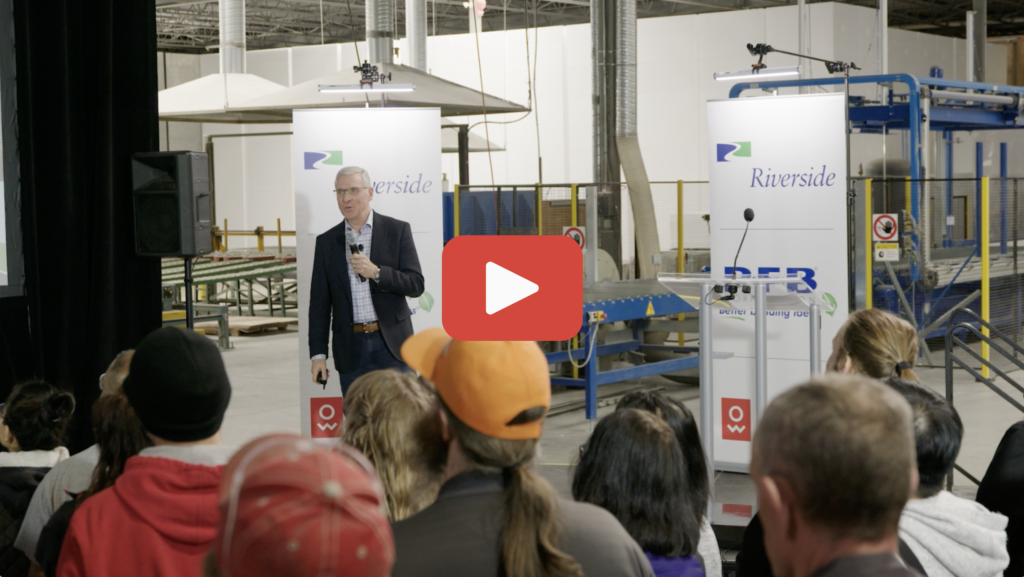Private Equity Firms Offer Workers Ownership, the Opportunity to Build Wealth, and Strong Benefits
New Video Featuring Riverside Portfolio Companies Offering Ownership to Employees in OH, IL, and CO

Private equity supports American workers by providing strong wages, professional development opportunities, safe work environments, and investments in underrepresented talent.
Giving Workers a Stake in the Success of Their Companies

In a new video, employees and leaders of AIC member The Riverside Company’s portfolio companies, PFB Corporation, siffron, and SCRAM Systems shared their excitement around being part of a shared ownership program that gives employees a direct stake in the success of the business.
“The advantages of working with a larger private equity firm that brings a great deal of resources is impressive, but it’s the individuals I’ve interacted with that have made the most difference,” said Chris Linthwaite, CEO of SCRAM Systems.
Multiple AIC members have partnered with Ownership Works, a nonprofit initiative that builds employee wealth by expanding shared employee ownership of companies, enabling employees to directly benefit from the company’s success . Since its founding in 2021, Ownership Works has impacted nearly 112,000 employees nationwide, generating over $130 million in payouts to low- and moderate-income workers.
Earlier this year, 60 Minutes featured a story about KKR portfolio company C.H.I. Overhead Doors (C.H.I.) after it became part of an ownership program that made all 800 of C.H.I.’s employees partial owners of the company. Employees experienced a “culture of ownership” and received a payout on equity that averaged $175,000 on top of their regular salary, as well as approximately $9,000 in dividends since 2015.

In May, Blackstone announced it would grant ownership stakes to most employees at its portfolio companies, which would apply to all new Blackstone investments going forward. This initiative will kick off by granting ownership to roughly 18,000 employees of Copeland, a manufacturer that builds commercial heating and cooling systems.
“The plan by Blackstone, whose $143 billion private-equity business employs more than 400,000 people via its portfolio companies, is part of a broader movement in the buyout industry to expand ownership beyond management ranks,” reported the Wall Street Journal.
Similarly, New Mountain Capital, a New York-based investment firm, estimates that it has created over $1.3 billion of value for employees at portfolio companies sold since 2018. “As the nation seeks economic growth and the creation of high-quality jobs, we think private equity (properly executed) can be a very socially positive pursuit,” said Steven B. Klinsky, New Mountain’s Founder and CEO. Another investment firm based in Los Angeles, Leonard Green & Partners, had over 7,500 portfolio-company employees participate in profit-sharing or similar distributions in 2021 alone, and over $1 billion was shared with workers outside the executive suite.

Opening Doors for Employees
Private equity investments also strengthen portfolio company employees’ skills development and career outlooks. As more industries face outdated workforce skills due to new technology, private equity’s operational improvements help create professional development opportunities for workers that enhance future job prospects.
Blackstone’s Career Pathways program works with portfolio companies to “increase access” and “enable advancement” for diverse and historically underrepresented potential hires. The program has led 50 of Blackstone’s portfolio companies to welcome 6,000 talent hires who might have otherwise been untapped. Blackstone portfolio companies have also hired over 100,000 veterans, veteran spouses, and caregivers since 2013 through the Veterans Hiring Initiative.
Supporting a Healthy Work Environment
Workers employed by private equity-backed businesses can depend upon strong wages and safe work environments. In 2022, the average U.S. private equity sector worker, both full- and part-time, earned around $80,000 in wages and benefits—the equivalent of about $41 per hour for a full-time worker and higher than the national average.
On top of a positive company culture and employee compensation, private equity investments help facilitate safer workplaces for employees, which helps protect workers and improve operational efficiency across portfolio companies. In fact, researchers from the Bureau of Labor Statistics, University of Georgia, and University of Texas at Austin found that public companies bought by private equity experienced “a large, sustained decline” in workplace injury rates – indicating that private equity helps “improve workplace safety.”

Driving Economic Growth
Private equity employs 12 million workers, generating over $1 trillion of U.S. GDP in 2022. The sector is critical in supporting American workers’ livelihoods and contributing to a strong U.S. economy.
A recent report by Ernst & Young LLP (EY) and the American Investment Council (AIC) shows that private equity-backed small businesses, their suppliers, and related consumer spending supported 4.4 million workers earning $360 billion in wages and benefits and $615 billion of GDP in 2022, driving economic growth and fostering entrepreneurship.


